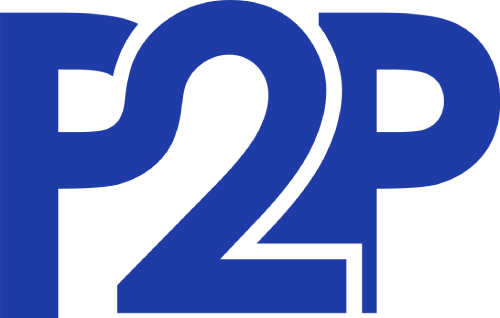GitHub also provides a number of pre-built and customizable CI/CD and automated workflows to manage, provision, and orchestrate cloud computing resources with GitHub Actions. Azure Boards provides extensive project management capabilities, including customizable dashboards, advanced reporting, and Kanban boards. GitLab also has project management tools, but Azure Boards is considered more feature-rich in this area. In conclusion, both Azure DevSecOps and GitLab offer robust DevSecOps capabilities, with each excelling in different areas.
Cloud-Native App Support
From McKesson to Meta and Spotify to SAP, many of the world's biggest and most innovative companies are built on GitHub—the leading developer platform compared to alternative solutions. Jenkins has a vast ecosystem of plugins, which can be both a strength and a challenge. Managing numerous plugins can lead to compatibility issues and technical debt. Azure DevOps, while also extensible, offers a more integrated experience with less dependency on external plugins. Azure DevOps is a fully managed service, meaning Microsoft takes care of the maintenance, scaling, and infrastructure.
- There are different types of version control mechanisms in the market; the primary ones are Mercurial and Git.
- We are tracking the infrastructure deliverables we need to achieve this goal in our epic gitlab-com&42, along with the issue gitlab-runner#4601.
- In January 2018, GitLab acquired Gemnasium, a service that provided security scanner with alerts for known security vulnerabilities in open-source libraries of various languages.
- Even though it all can be done from one’s editor, terminal, file manager and so on, sometimes one may want to do it from browser for various reasons.
- Azure DevSecOps shines with its deep security integrations and comprehensive testing tools, while GitLab stands out with its all-in-one approach and seamless task management.
How to create a CI/CD pipeline using Gitlab and azure DevOPs
It will set the CI/CD configuration, so each commit in Azure Repos will trigger a CI/CD pipeline in GitLab which will build, test, and deploy your app. How to keep your code in an Azure DevOps repository and run CI/CD with GitLab pipelines. “GitLab CEO weighing options for going public after employee share sale valued company at $6 billion”.
Sometimes these repositories are referenced as a DevOps “repo” or a source repository. Whatever the title, code repositories provide a place where developers can work to ensure high code quality.GitLab uses a git-based repository for source code management with version control. If you are in the Microsoft ecosystem, go with Azure DevOps, and if you rely on Atlassian products, Bitbucket will be the way to go. GitLab’s heavy focus on a completely centralized DevOps platform makes it the ideal solution for someone who is looking for a single solution. Finally, GitHub, with its maturity and feature set, is the best well-rounded solution that can be used to power any software development project.
I had to perform a lot of pipeline runs and tests to ensure that everything was in good working order. If the pipeline run ended with error or warning, I had to perform checks of the pipeline raw output, review artifacts produced, and check builds compiling results; test and deploy reports needed to be carried out too. All of that was done by hand, as at this point that was the only reliable way to debug the log of the new pipelines and make them comparable to the Azure DevOps ones. If your organization is unable to afford a particular platform, that platform will be out of the selection process, no matter its features.
When it comes to testing tools, Azure DevOps stands out for its extensive range of testing capabilities, making it a robust choice for teams needing both depth and versatility in their testing processes. Azure DevOps supports a full spectrum of testing options, including manual and automated testing, as well as advanced test planning and test case management through Azure Test Plans. This allows teams to manage test suites, create detailed reports, and integrate testing directly into their CI/CD pipelines. GitLab and Azure DevOps are both powerful DevOps platforms, but they cater to slightly different needs. GitLab offers an all-in-one, integrated solution that covers the entire software development lifecycle, making it ideal for teams seeking a seamless, unified experience. Its open-source nature and strong CI/CD capabilities appeal to those who value flexibility and customization.
Static Application Security Testing (SAST) Features
- When evaluating ease of use, Azure DevOps surpasses GitLab, particularly for teams familiar with the Microsoft ecosystem.
- Harness offers a robust Software Engineering Insights module helping engineering leaders discover bottlenecks in delivery and help teams delivery more effectively and predictably.
- Easier to integrate into cloud-agnostic setups or open-source-heavy environments.
- GitLab’s strength lies in its comprehensive DevSecOps platform, AI-driven features, and robust security tools, making it an excellent choice for complete end-to-end software development and security integration.
- This documentation is kept up-to-date by our documentation teams partnering closely with engineering, our product teams, and our outside community via community contributions.
Når man sammenligner GitLab og Height, er det klart, at hvert værktøj tilbyder forskellige fordele baseret på brugerens specifikke behov og projektkrav. GitLab provides a comprehensive DevSecOps platform ideal for development, security, and operations teams looking for an end-to-end solution to manage their software lifecycles efficiently. Its extensive features cater to serious development workflows with enhanced security and CI/CD capabilities. A plus to using GitLab is that it was, initially, a source code management tool / Git repository. As such, converting to their CI/CD platform would have advantages when it comes to easy integration.
GitLab’s strength lies in its comprehensive DevSecOps platform, AI-driven features, and robust security tools, making it an excellent choice for complete end-to-end software development and security integration. It is particularly beneficial for teams focused on automation and open-source projects. For example, when an event happens in the Slack integration, update a repo work item. Enables pipelines/workflows to be started based on when any defined event is executed in the code repository.
The cloud-based Azure DevOps service offers the complete platform excluding test plans completely free of charge for up to five users. Microsoft purchased GitHub in 2018, and now it is under the Microsoft services umbrella with the full backing of Microsoft. With Microsoft’s renewed focus and investments on open source platforms, users can confidently use GitHub for any open source project. This has made the previously paid features like private repositories into free services.
The Bronze plan (currently $4 per user monthly) is designed for personal projects and small teams. At DeployPlace we use self-hosted GitLab, we have chosen GitLab as most of us are familiar with it. Similar to GitHub, GitLab is a repository manager which lets teams collaborate on code. Written in Ruby and Go, GitLab offers some similar features for issue tracking and project management as GitHub.
There is an option of monthly updates https://traderoom.info/github-gitlab-bitbucket-azure-devops/ of new features and improvements in GitLab. GitLab CI and Azure DevOps are CI/CD solutions from different vendors, and offer different capabilities regarding syntax, internal tools (code repository, testing tools) and external integrations. Other well-established CI/CD tools in the market are GitHub, Jenkins, Bitbucket, and other solutions in the AWS Marketplace. Azure DevOps and GitLab are both robust DevOps platforms, but they serve different organizational needs. Azure DevOps offers a modular suite of tools that integrate seamlessly with the Microsoft ecosystem, making it particularly appealing for enterprises already using Azure, Visual Studio, or other Microsoft services. Its scalability and reliability are strong points for large-scale operations.

